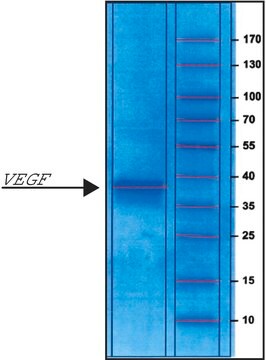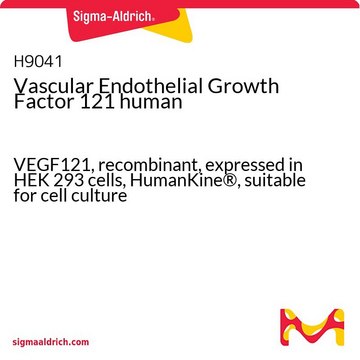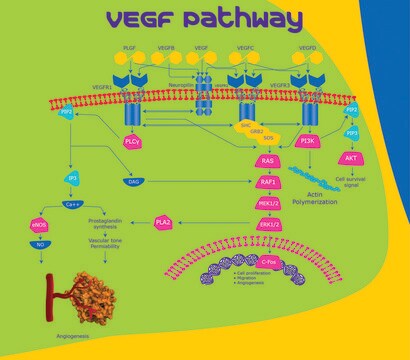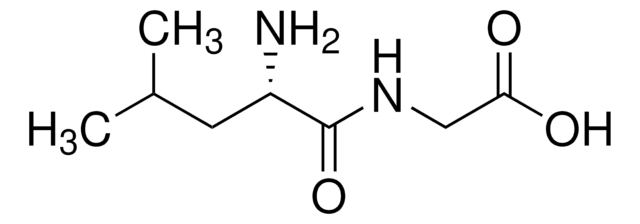V3388
Vascular Endothelial Growth Factor (aa 207-318) human
≥97% (SDS-PAGE), recombinant, expressed in E. coli, lyophilized powder
Synonym(s):
VEGF112, Vasculotropin
About This Item
Recommended Products
Product Name
Vascular Endothelial Growth Factor (aa 207-318) human, ≥97% (SDS-PAGE), recombinant, expressed in E. coli, lyophilized powder
biological source
human
Quality Level
recombinant
expressed in E. coli
Assay
≥97% (SDS-PAGE)
form
lyophilized powder
potency
0.75-3.75 ng/mL ED50
mol wt
predicted mol wt ~28 kDa
packaging
pkg of 5 μg
storage condition
avoid repeated freeze/thaw cycles
impurities
<1 EU/μg
UniProt accession no.
storage temp.
−20°C
Gene Information
human ... VEGFA(7422)
Application
Biochem/physiol Actions
Other Notes
Physical form
Analysis Note
Storage Class Code
11 - Combustible Solids
WGK
WGK 3
Flash Point(F)
Not applicable
Flash Point(C)
Not applicable
Personal Protective Equipment
Choose from one of the most recent versions:
Already Own This Product?
Find documentation for the products that you have recently purchased in the Document Library.
Articles
Vascular endothelial growth factor (VEGF) is a family of closely related growth factors having a conserved pattern of eight cysteine residues and sharing common VEGF receptors. VEGF-A (VEGF) is a potent growth factor for blood vessel endothelial cells, showing pleiotropic responses that facilitate cell migration, proliferation, tube formation, and survival. In the developing embryo VEGF-A mRNA is expressed by cells within tissues undergoing capillarization.
Our team of scientists has experience in all areas of research including Life Science, Material Science, Chemical Synthesis, Chromatography, Analytical and many others.
Contact Technical Service








